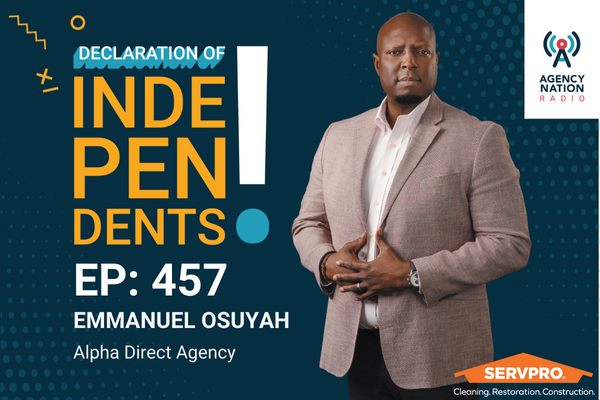How to Choose a Vendor That Fits Your Agency’s Needs

By: Dale Steinke
In Liberty Mutual and Safeco Insurance’s new Agent for the Future research report, Engaging Millennial Insurance Consumers Online, it talks about how independent insurance agents can provide a better digital experience for customers.
Providing an excellent customer experience includes creating a modern website and implementing tools that let customers contact you how and when they want. Often, this means bridging the gap with a technology solution or partnering with a vendor.
But with all the different options out there, choosing a vendor can seem overwhelming. How do you decide which solution is right for your agency? Here are some elements that agents should consider when evaluating a vendor:
1) Map out your agency’s needs. When considering any vendor, it’s essential that you take the time up front to know whether they’re the right fit to meet your needs.
To do this, you must have a clear picture of what your agency needs and what you are trying to accomplish with this purchase or partnership. What are the pain points you want this vendor to solve? What systems and processes do you have in place that this product must integrate with?
List out your required must-have features. Then, list the features that would be nice but are negotiable. Finally, list the features you’d be willing to give up. These lists will help you narrow down your options and keep you focused on what’s most essential. Knowing your requirements beforehand will help you avoid paying for shiny, unnecessary features or missing out on features you really need.
2) Understand what you’re getting for your money. After you’ve mapped your agency’s needs, research vendors and compare their offerings to see how well they align with your requirements.
Use your must-have list to evaluate the options. If the tool doesn’t meet your requirements, move on. For example, if you’re looking for an e-signature tool, make sure the feature offered by a vendor is compatible with the carriers you write the most business with. As you narrow down your options, ask for a product demo.
Also, make sure you understand exactly what the vendor provides and how your partnership would work. You might ask questions such as:
- How will the vendor’s offerings integrate into your agency’s workflow? For example, how does that agency management system handle the types of business you write most?
- If it’s a search engine optimization (SEO) vendor, will they write original content or do they expect you to supply that?
- What are they setting up once and what are they managing on an ongoing basis?
- What resources do they have to train you and your staff to use the service or software tool?
- Will you have a dedicated person working on your account? How often will you be able to touch base with them? For example, is time included each month for them to update your website, or does it cost extra every time you ask them to do something?
- Will this product be able to grow with your agency? Are there features you can customize or add on if you need them?
- What kind of feature enhancements are in the works? Are there any substantial changes coming to the product?
3) Decide how you will measure success. Once you’ve signed on the dotted line, how will you track the impact of the vendor on your business? Part of this depends on your goals for using the vendor. Are you hoping to attract more new customers? Increase efficiency? Save time?
If you’re hoping that the vendor will help grow your business, it’s critical that your agency obsessively tracks where your business comes from. For example, are you tracking leads from those optimized landing pages on your new website? Are you monitoring any changes in customer referrals? Are you noting increases in calls because of positive online reviews? Is everyone in your office asking customers detailed questions about how they found you?
If the goal is to increase efficiency or save time, are you tracking your internal processes and time savings?
To paraphrase what an agent once told me, “If you’re not tracking results, the only thing you’ll know is that you’re writing a big check to a vendor every month.”
Dale Steinke is director of independent insurance agency marketing programs at Liberty Mutual Insurance.









